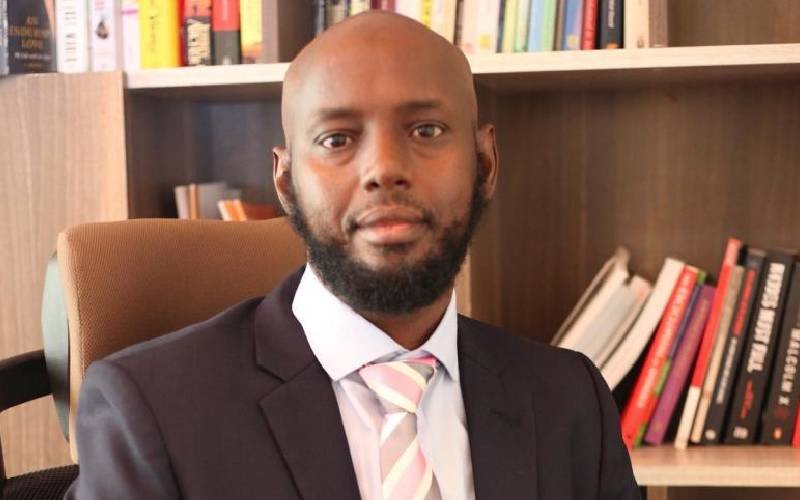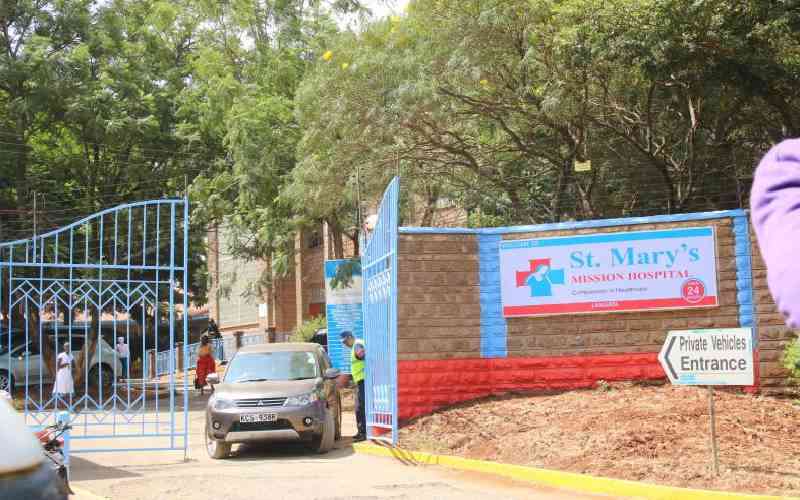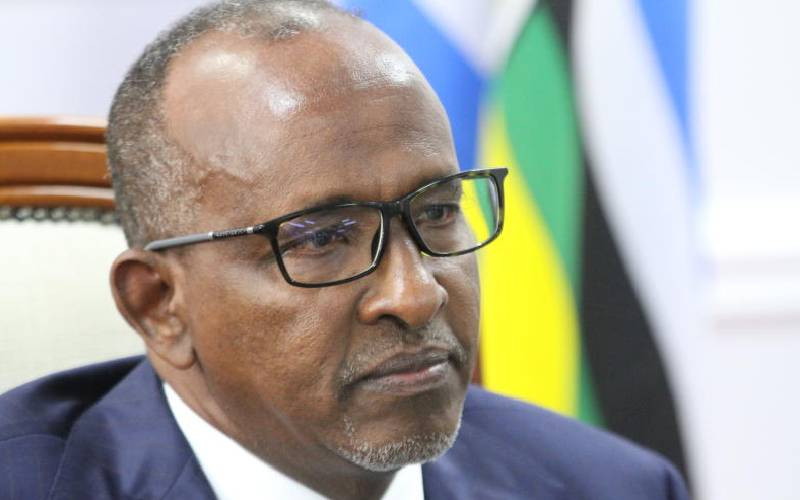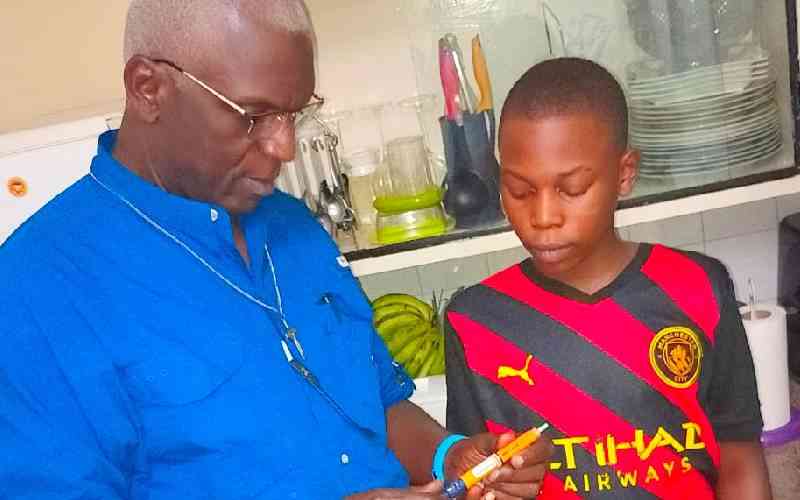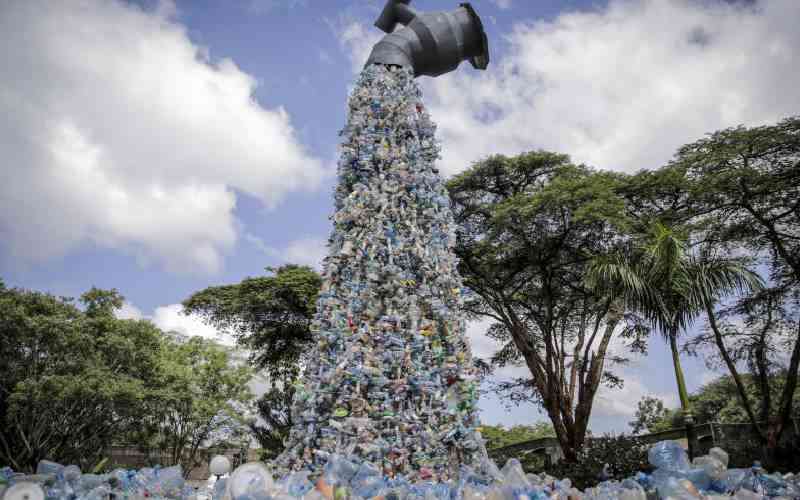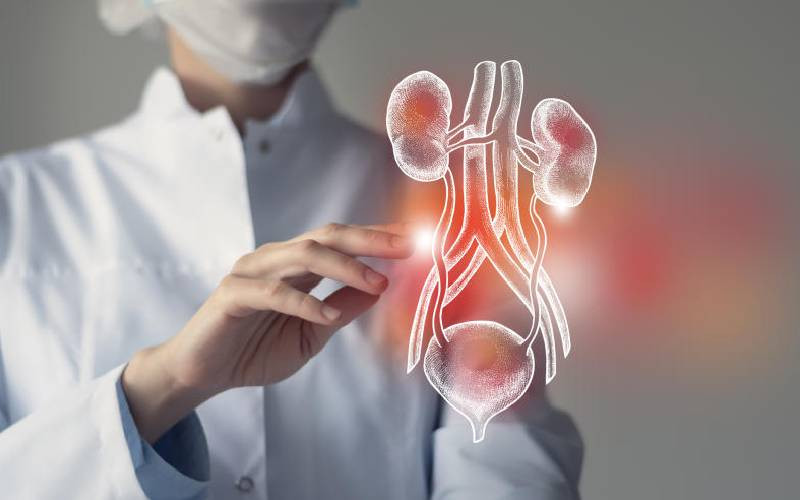
For twenty-five-year-old John Nalianya, February 13, 2019 marked the day his dreams were nearly crushed. Just months earlier, he had completed his Kenya Certificate of Secondary Education (KCSE) examinations and was filled with hope — he believed he would excel, join university, and chase the future he had always envisioned. But fate had other plans.
He awoke one morning to find himself in a hospital bed in Eldoret, doctors and family members standing silently around him. Confused and frightened, he asked why he was there and not at home. The answer broke his heart.
“I had been diagnosed with chronic kidney disease,” he recalls. “At first, I couldn’t believe it. I thought it was a mistake. I kept thinking, this can’t be something I’ll live with forever. But eventually, I accepted it and made up my mind to fight.”
Like many children, Nalianya grew up full of dreams and ambition. But after his diagnosis, life was never the same. Hospital corridors became familiar paths.
Endless dialysis sessions, restricted diets, fluctuating blood pressure, and a loss of appetite became part of his daily routine. Still, in the face of exhaustion and pain, he clings to one hope, to receive a kidney transplant and reclaim his health.
“I’m currently on dialysis twice a week and take medication every day to manage the condition,” he says. “The hospital visits are draining, physically and financially. It’s not easy. The cost of treatment is overwhelming, but my family does everything they can to support me.”
- Taskforce recommends prosecution of Mishra for alleged organ trafficking
- Why Somali patients are seeking kidney treatment in Kenya
- How new Transplant law could improve access to kidney treatment, blood donation
- Chronic Kidney Disease: What you should know
Keep Reading
Beyond the physical toll, the emotional weight has been heavy. Nalianya says the stigma surrounding his condition has isolated him.
Some people assume he is fragile or near death. Others have excluded him from simple activities, such as manual labour, and a few even whisper that he must be bewitched. Many, he says, still see kidney failure as a slow, inevitable death sentence.
“I’m appealing for help so I can get a kidney transplant. It’s my only real chance to live normally again, to be healthy, to dream, to work, to just be myself. But the cost is more than my family can ever afford. That’s why I’m asking for support, whether through donations or by sharing my story,” he says.
According to Dr Philip Cheptinga, Chief Nephrologist and Head of the Transplant Department at Moi Teaching and Referral Hospital (MTRH), kidney failure, also referred to as renal failure, occurs when the kidneys can no longer perform their essential function of filtering waste and excess fluids from the blood.
This can lead to a dangerous build-up of toxins in the body, resulting in a wide range of symptoms and complications. He explains that kidney failure can be caused by several factors, including diabetes, high blood sugar levels, and high blood pressure, which, when uncontrolled, damages the kidneys’ blood vessels.
Other causes, include glomerulonephritis, which is the inflammation of the kidney filters, polycystic kidney disease, a genetic disorder that causes cysts to form on the kidneys, and other contributors, such as certain medications, toxins, and various underlying medical conditions.
Dr Cheptinga says that symptoms of kidney failure, include fatigue, swelling in the legs, ankles and feet due to fluid retention, changes in urination, such as decreased output, foamy or bloody urine, as well as nausea and vomiting caused by the build-up of toxins in the body.
He recommends dialysis, kidney transplantation, medication, lifestyle changes, fluid management, regular exercise and stress management as viable treatment methods for kidney failure.
He further notes that kidney failure in children is an equally serious condition requiring immediate medical attention.
In children, kidney failure can be caused by congenital abnormalities, genetic disorders, infections and some medications. Affected children may display symptoms such as fatigue, swelling, changes in urination and growth delays.
Treatment options for children include dialysis, which filters waste and excess fluids from the blood, kidney transplantation, medications to manage symptoms and slow the disease’s progression, and early detection through regular medical check-ups, supported by a multidisciplinary care approach.
Dr Cheptinga also highlights the difference between acute kidney injury and chronic kidney disease. Acute kidney injury, also known as acute renal failure, occurs when the kidneys suddenly lose their ability to function, usually within hours or days. This can be caused by dehydration, infections, trauma, or certain medications and is often reversible with prompt treatment.
On the other hand, chronic kidney disease is a gradual loss of kidney function over a long period—months or even years—and is often caused by long-standing conditions like diabetes, high blood pressure, or genetic disorders.
Unlike acute kidney injury, chronic kidney disease is typically irreversible, but its progression can be slowed with the right treatment. Chronic kidney disease is categorised into five stages, with stage one being the mildest and stage five being the most severe, also known as end-stage renal disease (ESRD).
Despite all that he has been through, Nalianya remains hopeful and continues to fight for a second chance at life. His journey is not just about his personal struggle, but a reflection of the many challenges faced by patients with chronic illnesses across the country. It is also a reminder of the importance of early diagnosis, affordable healthcare, and support systems for those battling life-threatening conditions like kidney failure.
 The Standard Group Plc is a multi-media organization with investments in media
platforms spanning newspaper print
operations, television, radio broadcasting, digital and online services. The
Standard Group is recognized as a
leading multi-media house in Kenya with a key influence in matters of national
and international interest.
The Standard Group Plc is a multi-media organization with investments in media
platforms spanning newspaper print
operations, television, radio broadcasting, digital and online services. The
Standard Group is recognized as a
leading multi-media house in Kenya with a key influence in matters of national
and international interest.



